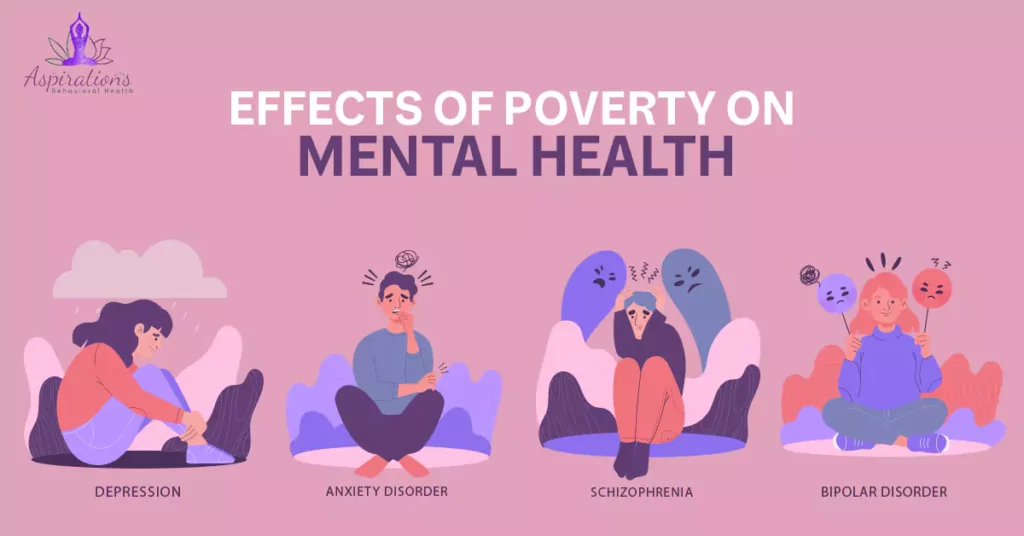Poverty is a problem that affects about 25% of the population in the whole world as per statistics. All over the world, almost 2 billion people were living in a state of poverty in 2022. Poverty and mental health are closely related, with a study showing both factors being directly proportional.
Every 1 in 10 American is living in a state of poverty. As per research, more than 11% of the citizens in the US live below par quality of life in terms of money. This stat may shock some, considering that the US is the wealthiest country in the world. Forty million people in the US are deprived of financial wellness, leading to a higher rate of depression.
Poverty and Mental Illness
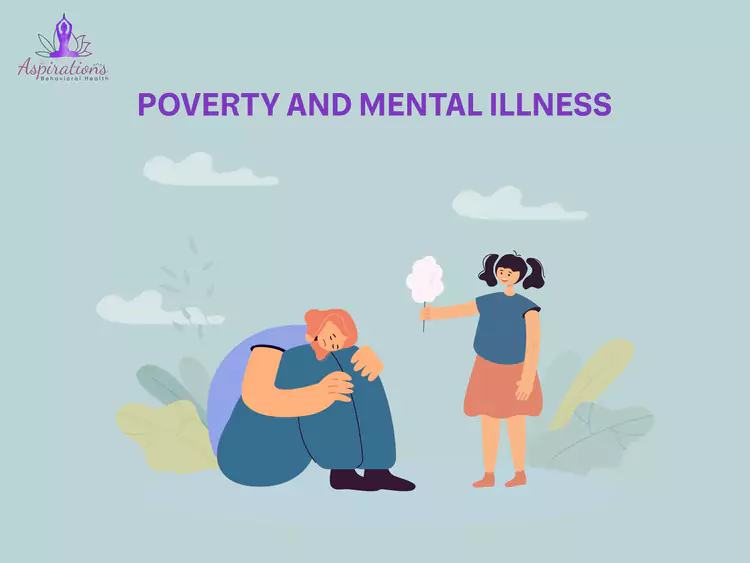
The correlation between poverty and mental illness is very strong. Since the world revolves around money, there is a direct effect on mental health when someone is deprived of necessities that require money. Comparatively, people in affluent conditions tend to be calmer and more relaxed, with a better mental state.
Relationship between Poverty and Mental Illness
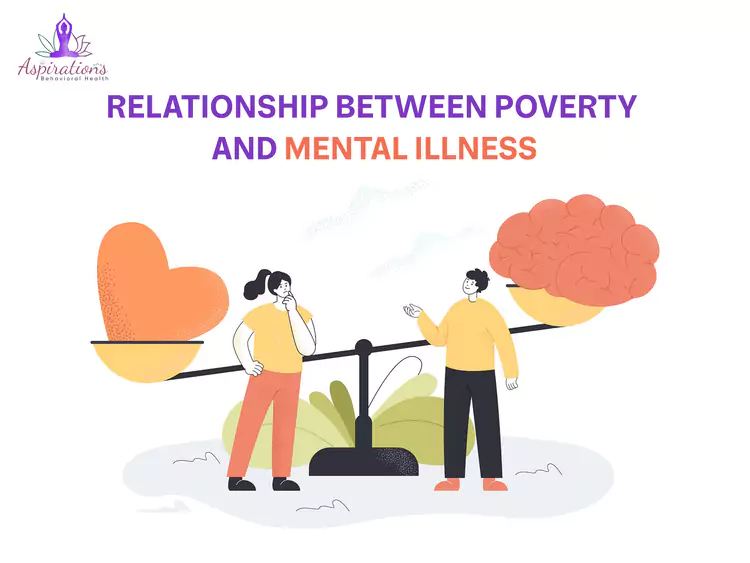
Research has shown that poverty is associated with an increased risk of mental illness. Several factors strengthen the relationship between poverty and mental illness. These factors include chronic stress, lack of access to quality healthcare, poor food consumption, low food consumption, and lack of education or other resources.
Living in poverty also causes the individual to face discrimination or social stigma, which can negatively affect their health. Poor people may be subjected to domestic abuse, exacerbating their mental condition.
People living in poverty are more likely to experience depression, anxiety, and other mental health issues than those not. Additionally, poverty can lead to increased physical/psychological stress, which can further worsen mental health issues.
Impact of Poverty on Mental Health
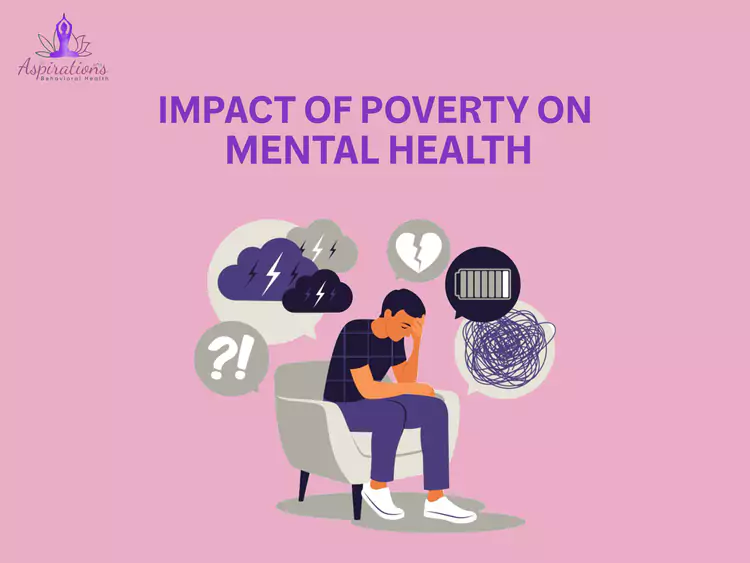
Poverty hurts mental health, and rightly so. People that do not have enough financial resources to fulfill the basic needs of their family or their loved ones are likely to be frustrated, depressed, anxious, or have other mental issues.
Stressed-out individuals, due to financial limitations set by poverty, are more likely to have mental health issues since money is essential to living in the 21st century.
Poverty causes social isolation, a huge factor in causing or increasing mental health issues in individuals. As per research, social isolation causes your brain’s stress response to amplify.
Here are a few results of poverty that impact mental health:
- Low-income people undergo financial stress, which causes mental health issues, including anxiety, depression, and frustration.
- People with poverty are linked with physical health issues due to poor nutrition, directly or indirectly affecting their mental health.
- Impoverished people have limited access to healthcare options for physical and mental issues, worsening their mental conditions.
- People struggling with their finances have limited social interaction with others, risking their chance of mental health issue increase.
- People living in conditions of poverty have more chances of experiencing violence or trauma, which can affect their mental health.
- Poor living conditions due to poverty can affect mental health since the living environment directly affects the mental state of the individual.
- Discrimination, judgment, and social stigma are common issues faced by people living in poor conditions, which can cause a problem with their mental health.
Social Determinants of Mental Health
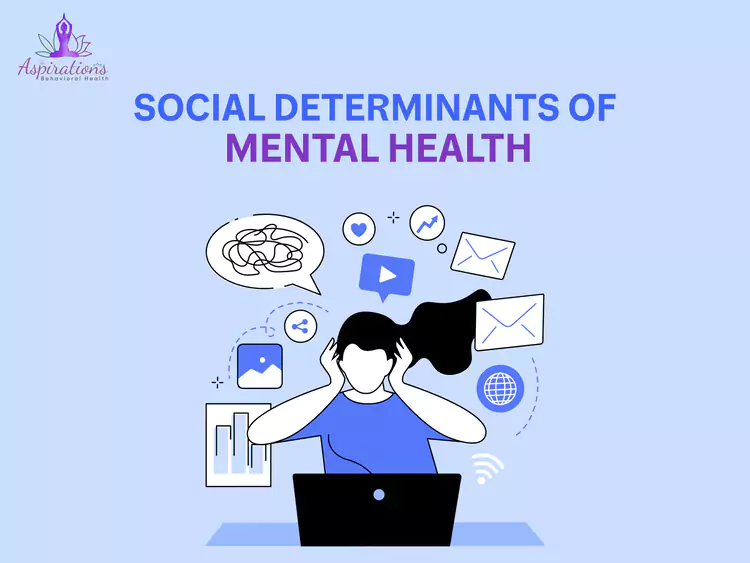
Many factors affect the mental health of an individual. The social conditions a person lives in are influential in determining whether their mental state is good or bad. Many social determinants impact the mental health of an individual:
Economic Inequality and Poverty
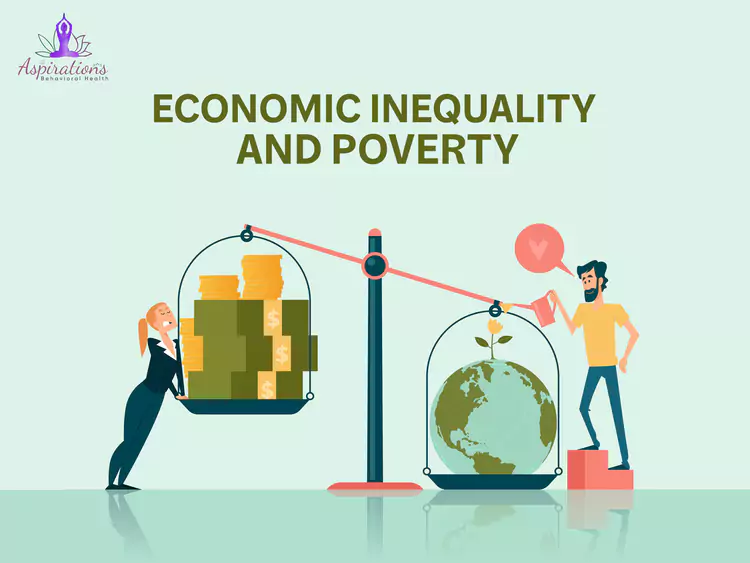
Economic uncertainty and inequality vary from country to country and depend upon technological progress, globalization, wars, natural disasters, etc. Study shows that economic inequalities are a reason for oppression and discrimination, which is a significant factor in causing mental distress among low-wage people. Economic inequalities have a tremendous impact on people’s mental health.
Economic inequality and poverty can have a significant impact on mental health. People living in poverty are more likely to experience depression, anxiety, and other mental health issues than those not. Additionally, economic uncertainty can lead to increased stress, which can further multiply mental health issues.
Access to Health Care
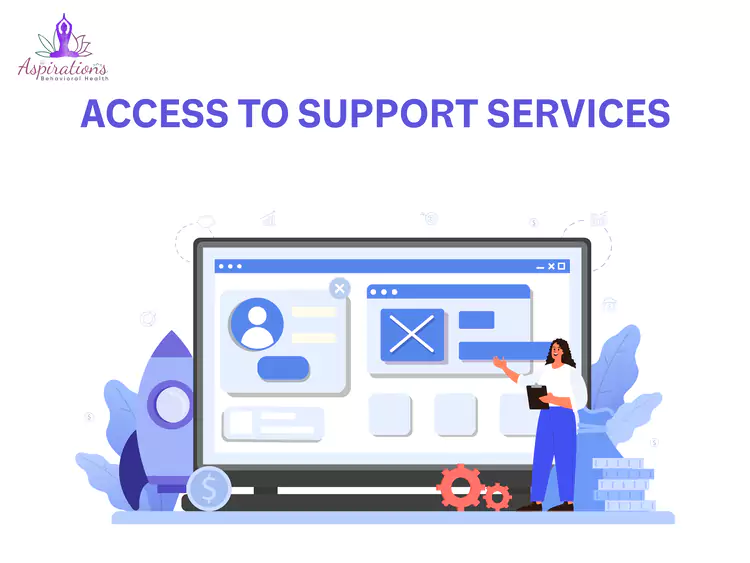
Access to health care is vital for any individual. Considering the US’s high prices of medical and hospital services, people suffering from poverty are less likely to have healthcare access. In an emergency, it is highly unlikely that the population suffering from poverty can be treated similarly to others.
People living in poverty are less likely to have access to quality health care, which can lead to worse mental health outcomes. Additionally, impoverished people are more likely to be denied mental health services or additional medical services coverage due to a lack of insurance or other financial barriers.
Access to Support Services
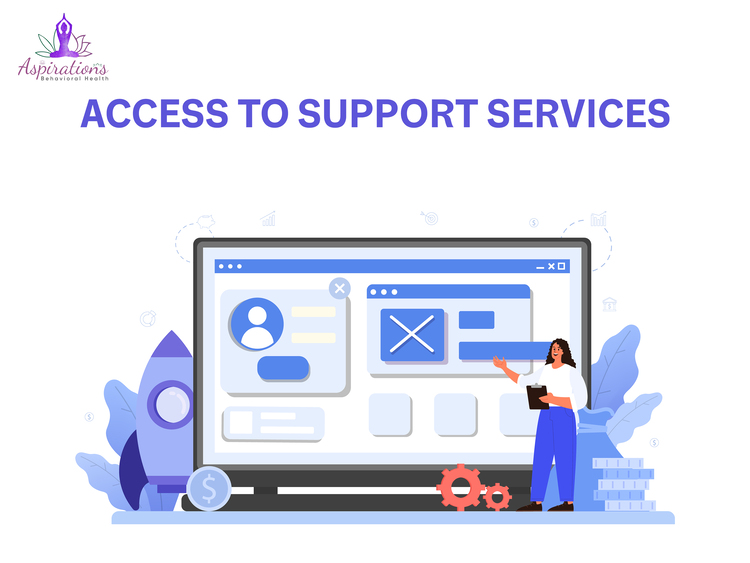
Access to support services is very important to have for better mental health. Support services such as housing, financial assistance, and job training are crucial for having a positive frame of mind. Unfortunately, impoverished people are deprived of these services, worsening their mental condition. People living in poverty do not have access to support services typically.
People suffering from mental health issues have several resources they can use to shift their minds to a better state. One of the resources is mental health services, and people with bad financial conditions may be unable to afford that, worsening their condition.
Accountable Care
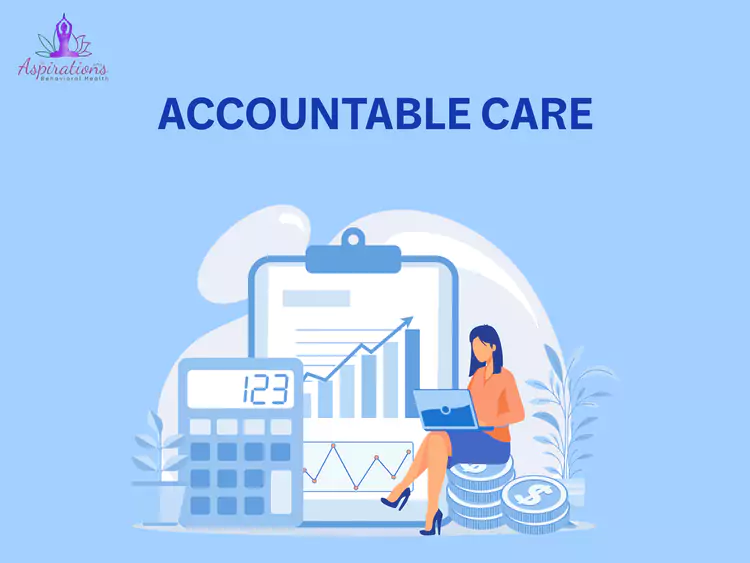
Accountable care is a healthcare model intended to improve, preserve and enhance the quality of healthcare services provided by healthcare professionals while keeping it at a low cost. It is intended to keep the cost of medical services low, keeping the quality and efficiency high.
People with low-income face challenges while having access to accountable care, which include transportation costs of healthcare facilities, limited access to healthcare facilities, copayments, deductibles, and other financial barriers.
Accountable care can improve access to mental health services for impoverished people. Additionally, accountable care can be used to provide more efficient and effective mental health services.
Abuse and Neglect
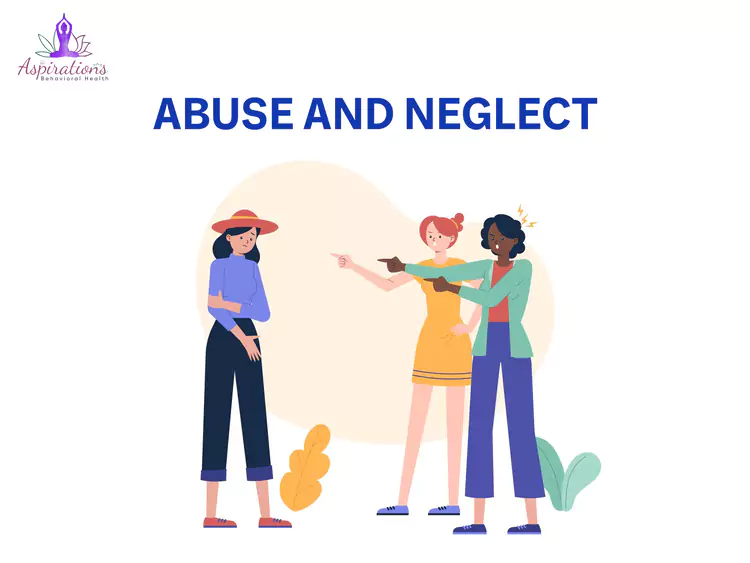
People living in poor financial conditions are more likely to have issues with their mental state. As per a report, people living in low-income areas go through physical abuse, emotional abuse, sexual abuse, and neglect.
Abuse and neglect can have a significant impact on mental health. People living in poverty are more likely to experience abuse and neglect, which can lead to worse mental health outcomes. Stressed-out individuals tend to have their mental state falling to pieces because of abuse and neglect.
Conclusion
The mental health issue among impoverished individuals must be taken seriously since millions of Americans have them. Poverty has affected over 40 million people all over the US, and researchers have shown a direct link between bad financial conditions and mental health. It is possible that mental health issues already exist in some individuals, and poverty only makes it worse.


